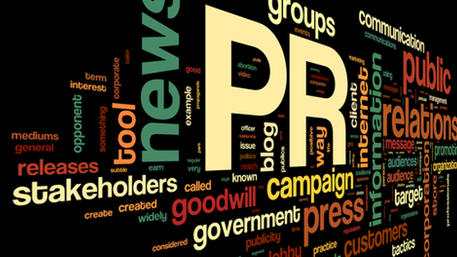Why PR is essential for influencers and brand dealsFor many aspiring influencers, the first brand deal is a major milestone. In a way, it literally confirms you are doing your job well: a brand deal implies that your influence on your followers matters. If a brand deal seems out of reach for all but the most successful influencers, you’ll be glad to hear that you don’t actually need a massive following to secure one. With a solid PR strategy and the right approach, most micro-influencers can start earning through sponsored products. How brand deals work Let’s start by covering the basics: what brand deals are and how they work. The basic idea is a deal between an influencer and a brand, where the influencer recommends the brand’s products to their followers. Studies show that influencers, as the title suggests, have a large impact on the purchases made by their audience: as much as 49% of consumers rely on influencer recommendations. It therefore makes sense, from a brand’s perspective, to advertise their product in this way. What’s in it for the influencer, though? This depends on the specifics of the deal. The majority of brands will offer merchandise and free products in exchange for the promotion. If that’s fine by you, then you’re in luck. Studies show, however, that over 90% of influencers would prefer to simply be paid for the promotional work that they do. All of these details should be included in a contract drawn up between the brand and the influencer. This method of promotion is fairly new and there is little by way of standard agreements and operating procedures, as there are in traditional forms of advertising. It’s therefore important, both from the point of view of the influencer and the brand, to communicate clearly when working out the details of the partnership and then draw up a document outlining the responsibilities of each side. This helps to prevent misunderstandings and issues further down the line. Using PR to secure a brand deal There are dedicated websites where influencers and companies can connect to form a brand deal. These influencer marketing platforms are intended to be a resource for both sides to market themselves and find a match for a successful promotional deal. Interestingly, statistics show that only a small minority of brand deals is secured in this way. In fact, the majority of micro-influencers report that their brand deals are a result of a company approaching them. A micro-influencer, for the record, is usually someone with a following of 5k to 20k. We know that you don’t need millions of followers to secure a brand deal, then, and we know that usually, firms choose which influencer to approach on their own. This is where PR comes in, to ensure that you’ll be the influencer that a brand will consider for a deal. Online presence – done the right way Although your number of followers is not without significance, your branding, persona, history, and trustworthiness are just as important from a brand’s point of view. Creating and maintaining a suitable online presence through a careful PR strategy will therefore increase your chances of being approached for a brand deal. A company will have to trust you, as the influencer, to market their product in a respectable, appropriate way. At the end of the day, if the influencer representing a brand behaves inappropriately, the brand loses credibility as well. Verifying your social media accounts is one way to imply both trustworthiness and noteworthiness, and to some extent, accountability. The blue badges next to your usernames on social media do more than draw in followers: they indicate that you are a dedicated influencer with your own public image to maintain. Social media verification on as many platforms as possible, then, is going to be one way in which advertisers will be reassured that you might be the right influencer for the job. Having a Wikipedia page is another way for influencers to raise their credibility in the eyes of advertisers. People tend to assume that if someone has a Wikipedia page – be it for the brand or for the individual – they are noteworthy and important. From an advertiser’s perspective, a Wikipedia page implies that you are well-known, have your own reputation to look after, and possess a platform from which to reach a broad audience. Objective (and preferably positive) media coverage is going to be essential for both social media profile verifications and creating a Wikipedia page. It’s easy to see, then, how it all starts with PR. Influencers hoping to secure brand deals need news and feature article mentions that propagate a positive online persona and a trustworthy image, as well as serving as a foundation for social media verification and a Wikipedia presence. Read Now  For many aspiring influencers, the first brand deal is a major milestone. In a way, it literally confirms you are doing your job well: a brand deal implies that your influence on your followers matters. If a brand deal seems out of reach for all but the most successful influencers, you’ll be glad to hear that you don’t actually need a massive following to secure one. With a solid PR strategy and the right approach, most micro-influencers can start earning through sponsored products. How brand deals work Let’s start by covering the basics: what brand deals are and how they work. The basic idea is a deal between an influencer and a brand, where the influencer recommends the brand’s products to their followers. Studies show that influencers, as the title suggests, have a large impact on the purchases made by their audience: as much as 49% of consumers rely on influencer recommendations. It therefore makes sense, from a brand’s perspective, to advertise their product in this way. What’s in it for the influencer, though? This depends on the specifics of the deal. The majority of brands will offer merchandise and free products in exchange for the promotion. If that’s fine by you, then you’re in luck. Studies show, however, that over 90% of influencers would prefer to simply be paid for the promotional work that they do. All of these details should be included in a contract drawn up between the brand and the influencer. This method of promotion is fairly new and there is little by way of standard agreements and operating procedures, as there are in traditional forms of advertising. It’s therefore important, both from the point of view of the influencer and the brand, to communicate clearly when working out the details of the partnership and then draw up a document outlining the responsibilities of each side. This helps to prevent misunderstandings and issues further down the line. Using PR to secure a brand deal There are dedicated websites where influencers and companies can connect to form a brand deal. These influencer marketing platforms are intended to be a resource for both sides to market themselves and find a match for a successful promotional deal. Interestingly, statistics show that only a small minority of brand deals is secured in this way. In fact, the majority of micro-influencers report that their brand deals are a result of a company approaching them. A micro-influencer, for the record, is usually someone with a following of 5k to 20k. We know that you don’t need millions of followers to secure a brand deal, then, and we know that usually, firms choose which influencer to approach on their own. This is where PR comes in, to ensure that you’ll be the influencer that a brand will consider for a deal. Online presence – done the right way Although your number of followers is not without significance, your branding, persona, history, and trustworthiness are just as important from a brand’s point of view. Creating and maintaining a suitable online presence through a careful PR strategy will therefore increase your chances of being approached for a brand deal. A company will have to trust you, as the influencer, to market their product in a respectable, appropriate way. At the end of the day, if the influencer representing a brand behaves inappropriately, the brand loses credibility as well. Verifying your social media accounts is one way to imply both trustworthiness and noteworthiness, and to some extent, accountability. The blue badges next to your usernames on social media do more than draw in followers: they indicate that you are a dedicated influencer with your own public image to maintain. Social media verification on as many platforms as possible, then, is going to be one way in which advertisers will be reassured that you might be the right influencer for the job. Having a Wikipedia page is another way for influencers to raise their credibility in the eyes of advertisers. People tend to assume that if someone has a Wikipedia page – be it for the brand or for the individual – they are noteworthy and important. From an advertiser’s perspective, a Wikipedia page implies that you are well-known, have your own reputation to look after, and possess a platform from which to reach a broad audience. Objective (and preferably positive) media coverage is going to be essential for both social media profile verifications and creating a Wikipedia page. It’s easy to see, then, how it all starts with PR. Influencers hoping to secure brand deals need news and feature article mentions that propagate a positive online persona and a trustworthy image, as well as serving as a foundation for social media verification and a Wikipedia presence. Comments are closed.
|
- Home
- Team
- Tik Tok
- Instagram & FB Verification
- Verified Instagram Accounts
- Instagram Usernames & Brokerage
- Verified Instagram Username Change
- Celebrity Instagram Growth Giveaways
- Verified Instagram Accounts With Desired Username
- Recover Disabled or Hacked Accounts
- Linkedin Username Claim Service
- Acquire Premium Accounts
- YouTube Verification
- Instagram Ban Service
- Twitter Verification
- Become a Forbes Contributor
- Write For Entrepreneur.com
- Verified Twitter Username Change
- Verified Facebook Page With Desired Username
- Instagram Growth
- Reputation Management
- Snapchat Verification
- Famous Birthdays
- Wikipedia Page Creation
- Google Knowledge Panel
- Spotify promotion
- Google News Approval Service
- PR for Influencers & Content Creators
- PR for Brands & Startups
- PR for Crypto, Blockchain & DeFi Companies
- PR for Musicians & Artists
- Partner Program
- Careers
- Blog Articles
- Clients
- Contact
Contact
Only Official Email Address [email protected]Always email directly via our official email to make sure you're liaising with us!
|
|



